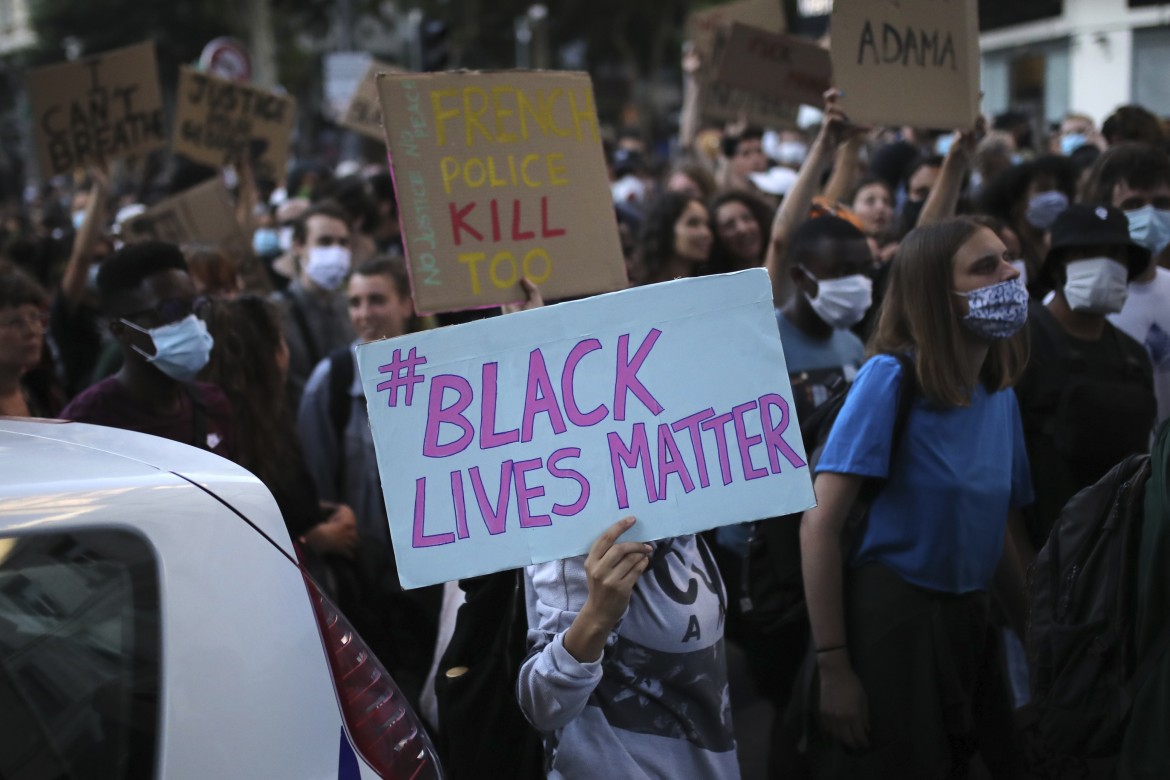Report
Anti-racism protests spread to Paris, seething over the Adama Traoré case
Police made 18 arrests Wednesday after a demonstration against police violence and racism organized by the family of Adama Traoré, a 24-year-old young man who died in a police station in July 2016.

Eighteen people were detained on Wednesday in Paris after the clashes that took place late Tuesday evening at the end of the demonstration against police violence and racism organized by the family of Adama Traoré, a 24-year-old young man who died in a police station in July 2016—an echo of the uprising taking place in the US after the death of George Floyd. The government is now trying to restore calm. The demonstration, which was attended by 20,000 people, had been banned by Prefect Didier Lallement because of the COVID epidemic.
The Minister of the Interior, Christophe Castaner, promised that in the case of police officers, “every fault, every excess, every word, including racist expressions, will be the object of investigations and punishment.” Government spokesperson Sibeth Ndiaye allowed that a “legitimate emotion” had been expressed by the protesters, and recalled that the demonstration had been forbidden “not because of its object, but because of COVID.” According to Ndiaye, “one cannot compare” the situation in France with that in the US, “either in terms of history or social organization.”
The government is clearly walking on eggshells, because the revolt against the methods used by the police is growing. Adama’s sister, Assa Traoré, who has become a symbol of the fight against racism and repression, stressed that Tuesday’s demonstration “is only the beginning.” In the speech she made in the evening, she cited some of the names of victims in recent years: Zyed and Bouma, two boys who died electrocuted in a power station in Clichy-sous-Bois where they had taken refuge to escape the police—a tragedy that had been the spark for the 2005 revolt in the banlieues—and then Babacar Gueye in 2015, Angelo Garand in 2017, Gaye Camara in 2018, Ibrahima Bah in 2019. “The list is too long,” Assa Traoré said.
Jean-Luc Mélenchon, leader of France Insoumise, paid tribute to the “impressive calm and quiet determination of a youth humiliated by incessant controls, permanent injustice and ostentatious, unpunished police violence.” The secretary of the Socialists, Olivier Faure (striking a more cautious tone, because Adama died when the Socialists were in power), insisted on the right to demonstrate: “The prohibition on demonstrating in this country cannot be maintained until August 31. There is a need to get democracy out of confinement.”
The right, on the other hand, showed nothing but indignation. According to the group leader of the Republicans in the Senate, Bruno Retailleau, the demonstration was “unacceptable.” The president of the Senate, Gérard Larcher (also from LR) said it was “against the law.”
The Traoré family is contesting the results of the expert investigation on the causes of Adama’s death carried out at the request of the judicial authorities, which concluded that the boy had a heart condition and did not die of suffocation. The family presented the conclusions of an independent expert report which contradicts this claim and places the blame for his death on the technique of tackling suspects to the ground in case of arrest.
Originally published at https://ilmanifesto.it/razzismo-e-violenza-della-polizia-la-francia-ribolle-per-il-caso-adama-traore/ on 2020-06-04
